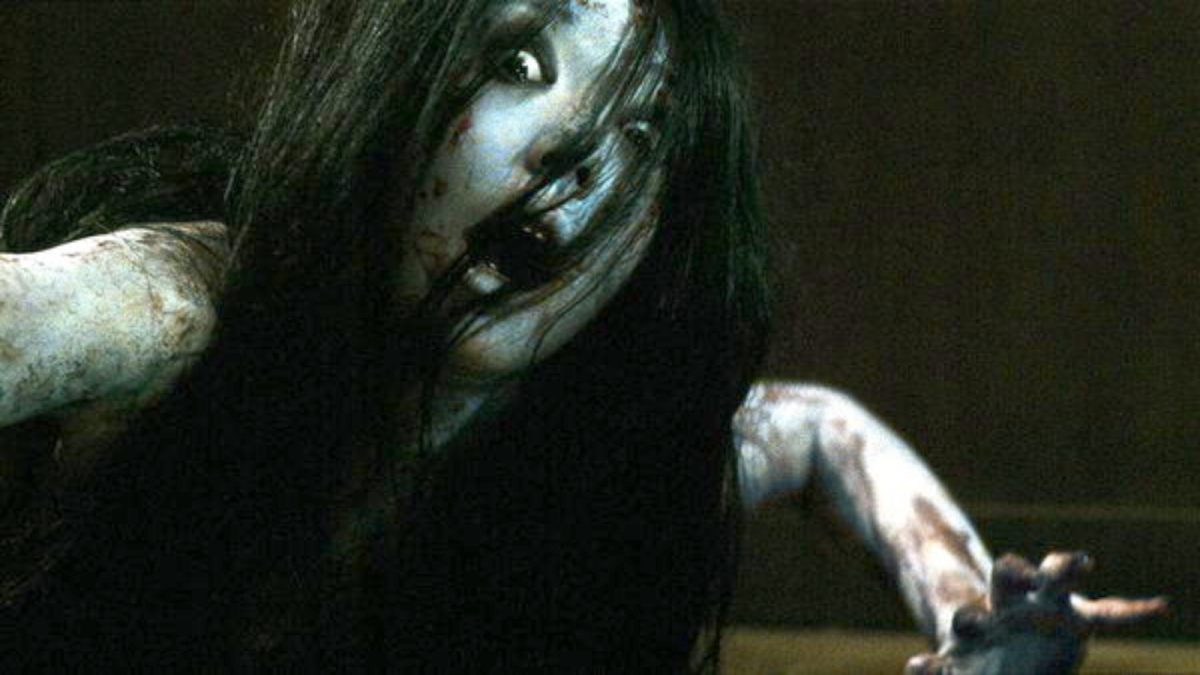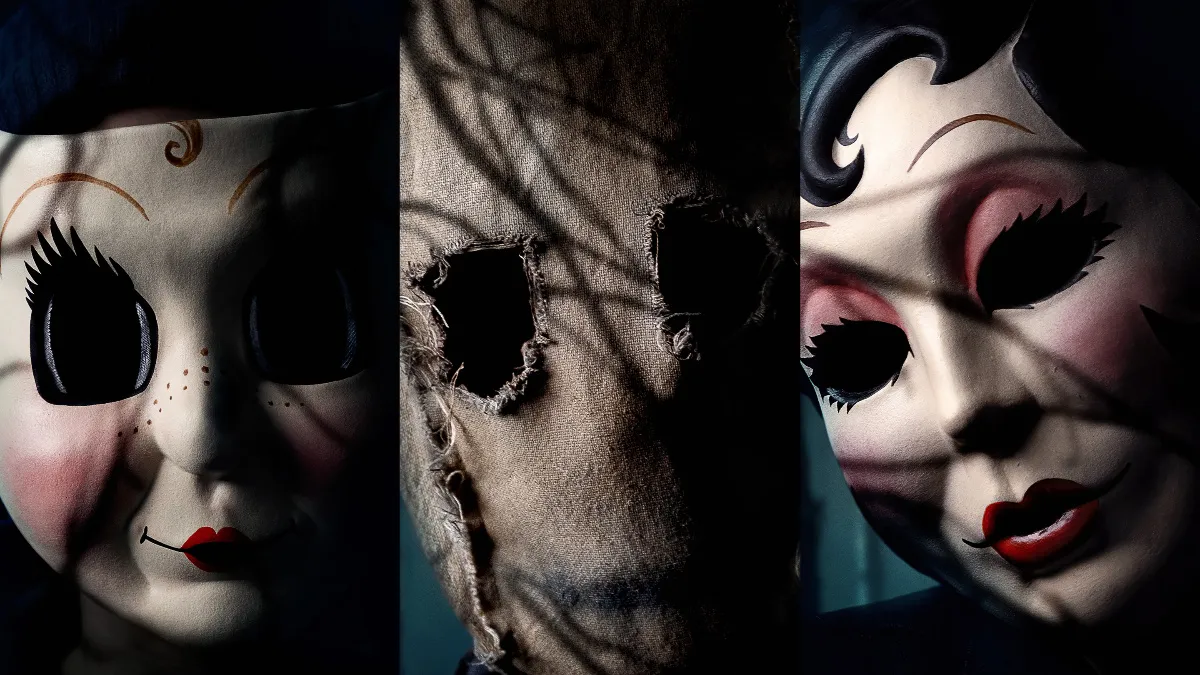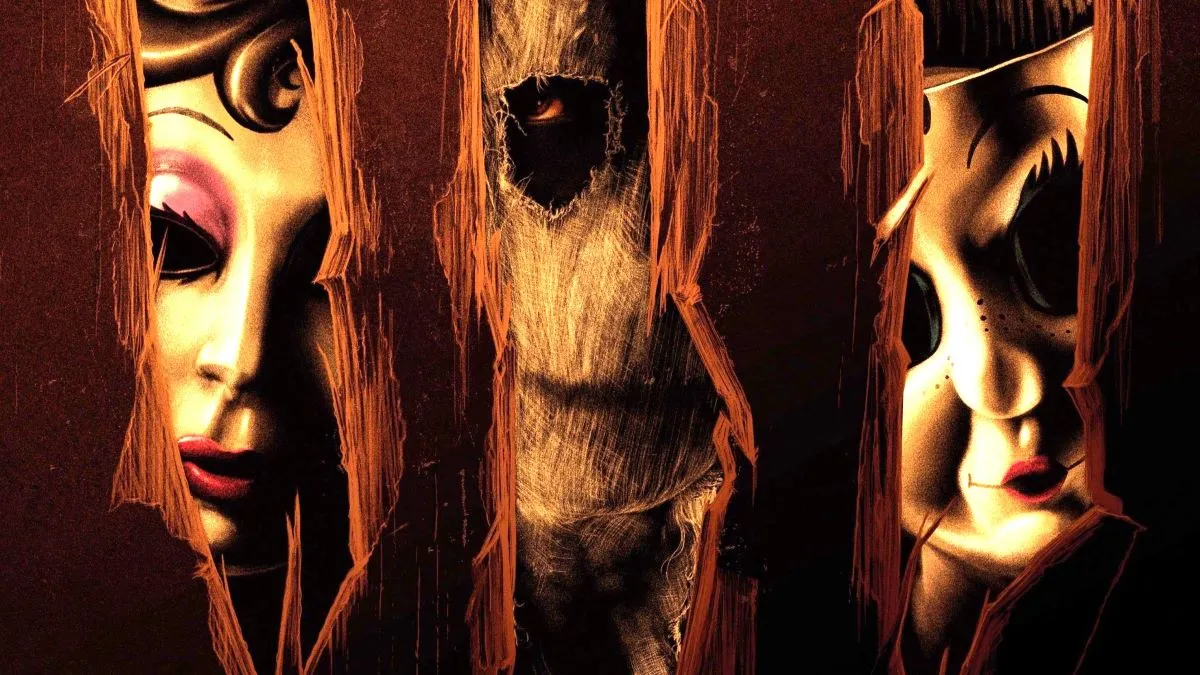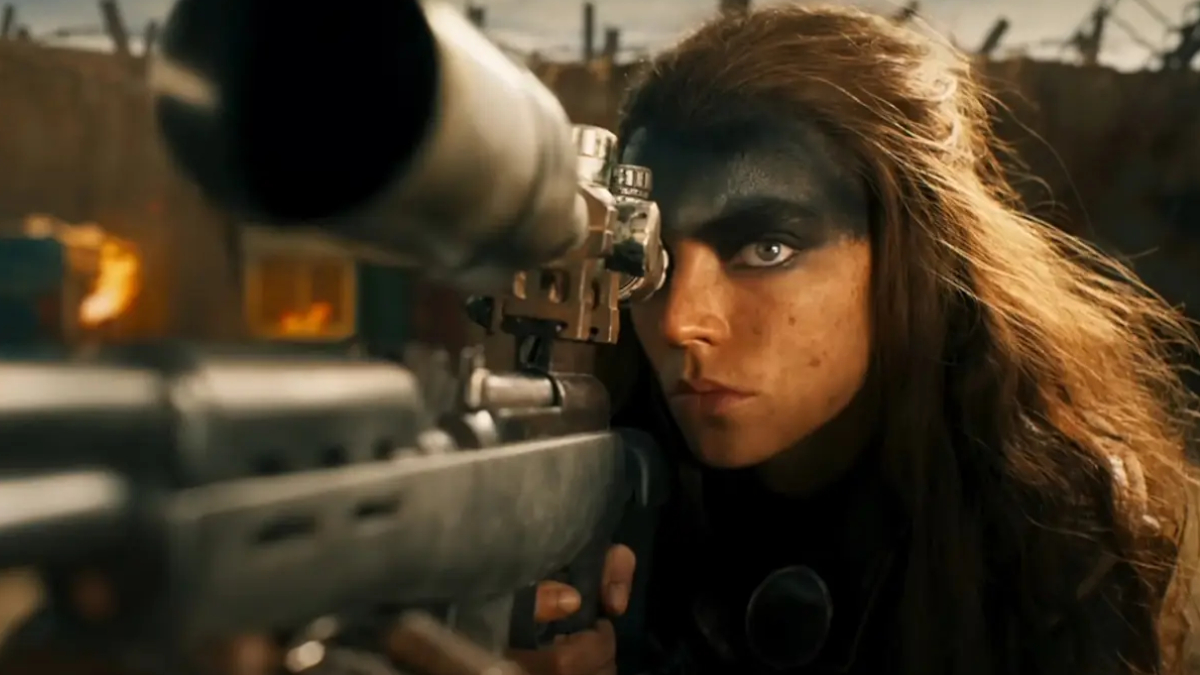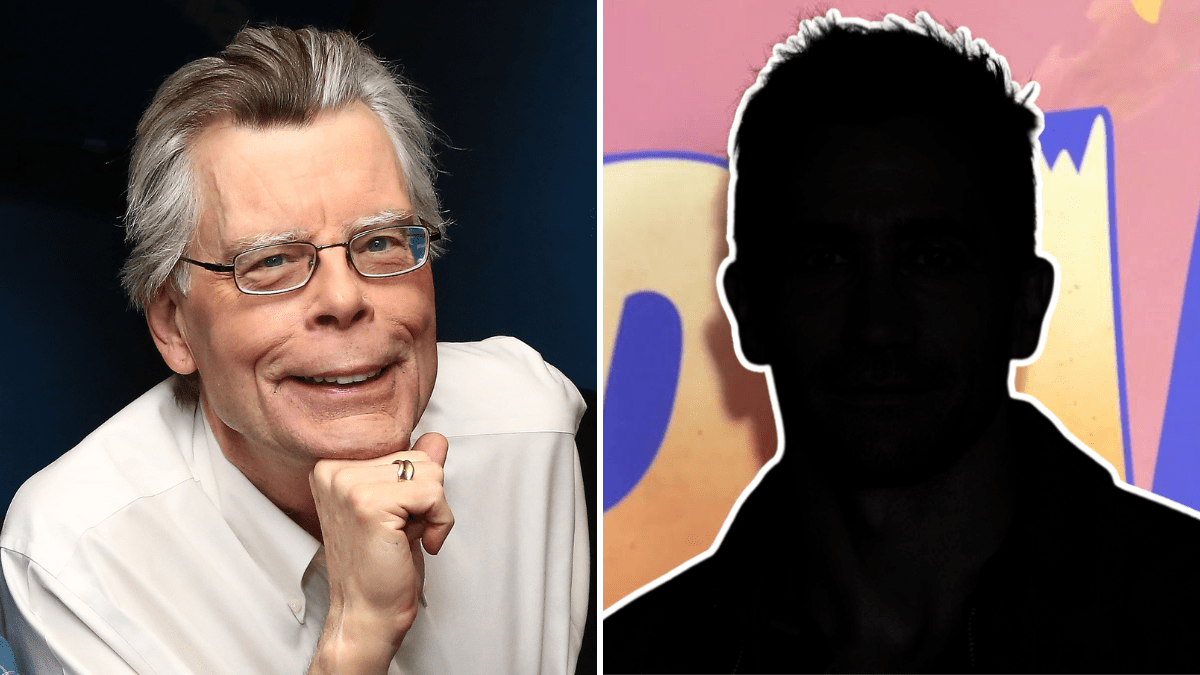Although it might have been living in Hollywood’s shadow for the last few decades, Japanese horror (or J-horror) has been at the forefront of the genre since 1964, when Onibaba (directed by Kaneto Shindo) marked the first-ever feature-length Japanese horror film. The since-deceased director, who also worked on Children of Hiroshima and The Naked Island, has been widely cited as pioneering the J-Horror sub-genre, which integrated itself into mainstream from the ’90s onwards.
Since then, J-horror has been dominating the game with such masterful flair that the United States were eager to capitalize on the success generated from across the globe. Although Japan have pumped out horror films — both short and feature-length — since the ’60s, it wasn’t until the modern era came knocking that J-horror began soaring to even greater heights. Not only did Japanese culture gift Americans with anime, they also revolutionized the horror genre for Hollywood to follow in its footsteps.
1. Ju-On: The Grudge (2002) / The Grudge (2004)
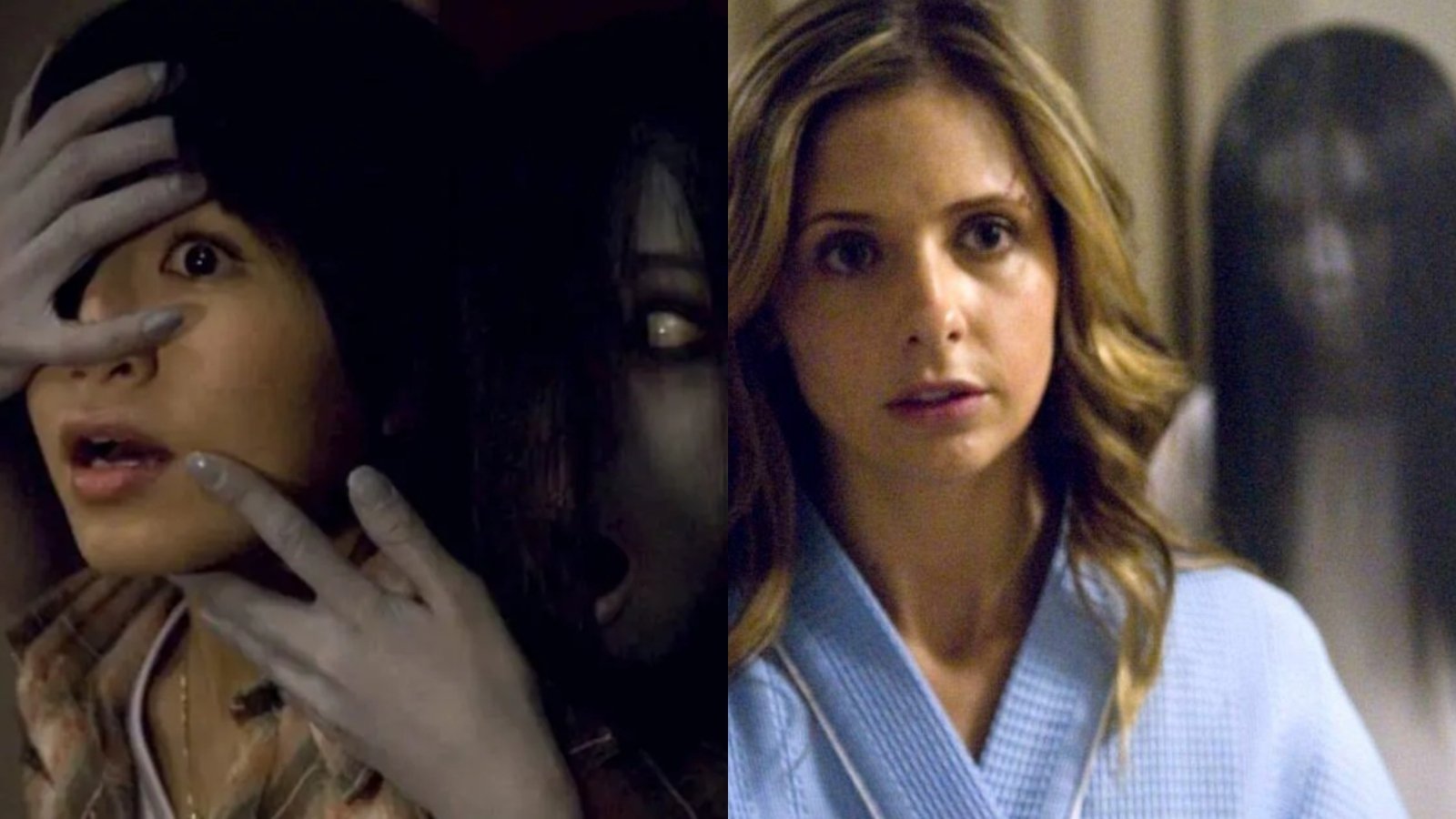
Perhaps one of the biggest triumphs to come from Japan, Ju-On: The Grudge is the third installment in the Ju-On franchise, succeeding two short films (Katasumi and 4444444444) that kick-started the universe and two feature-length films in Ju-On: The Curse (2000) and Ju-On: The Curse 2 (2000). In the following years, The Grudge would spawn two sequels, Ju-On: The Grudge 2 and The Grudge 3. For the uninitiated, The Grudge (both the 2002 and 2004 variants) sees the vengeful ghost of Kayako (after being murdered by her husband Takeo Saeki) torment whomever enters a family home in Nerima, Tokyo, where the curse to revive her was conceived.
While the American remake garnered more international attention than the Japanese original, the concept originated in Japan as it closely resembled the Japanese folktale Yotsuya Kaidan, one of the most famous Japanese ghost stories ever told. Ju-On: The Grudge grossed $3,657,876 in the States, while the remake earned $187.2 million.
2. Ringu (1998) / The Ring (2002)
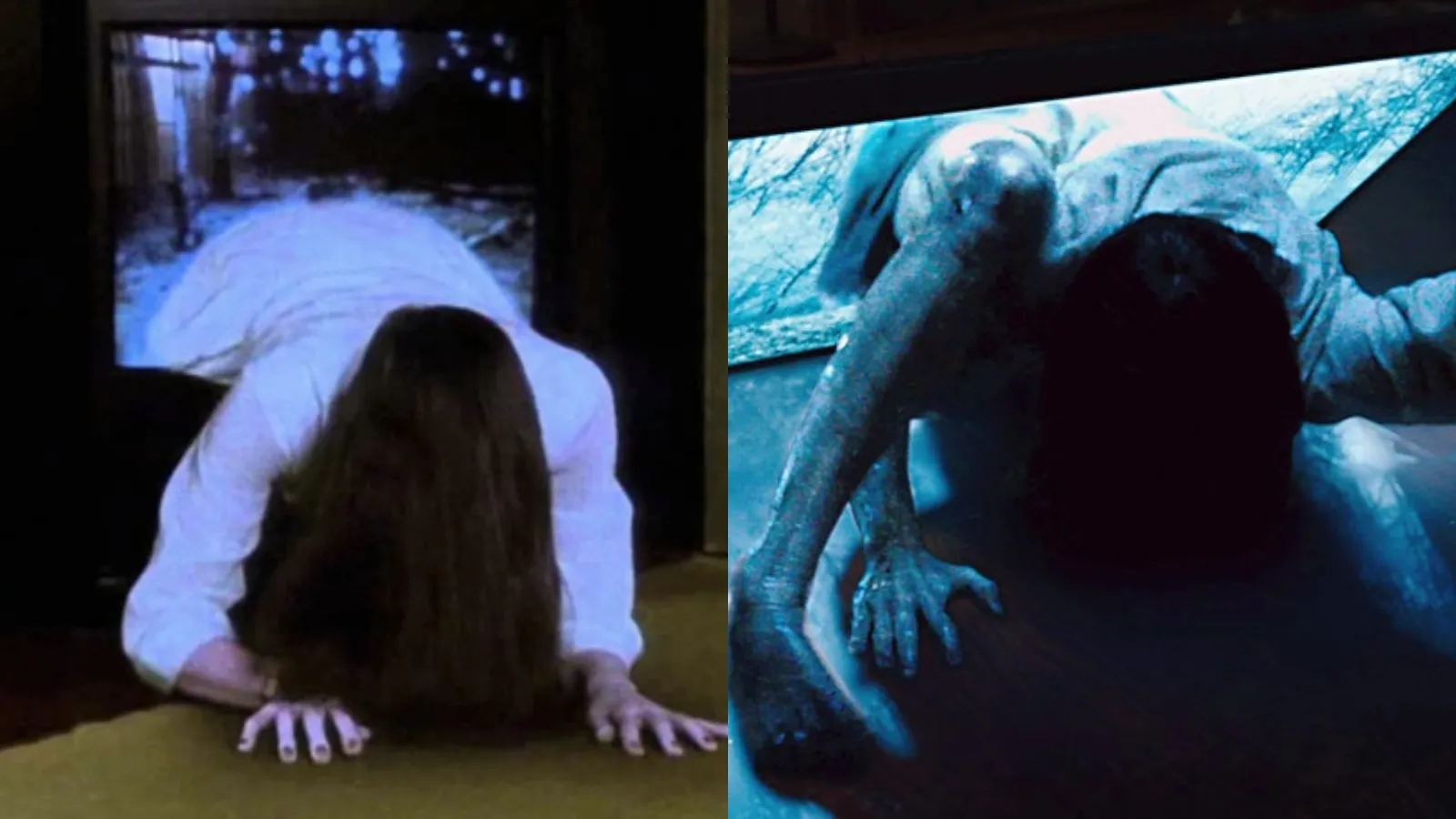
After compared favorably to The Grudge franchise, Hideo Nakata’s Ring/Ringu was based on the 1991 novel of the same name by Koji Suzuki. Four years after Ringu premiered in Japan, the States latched onto the growing popularity and remade the narrative with The Ring. The story centers on a journalist (Reiko Asakawa in the Japanese variant and Rachel Keller in the American variant) who discovers a cursed videotape, cursed by the vengeful ghost of Sadako/Samara — a daughter murdered by her adoptive mother — that kills the viewer within seven days. Additionally, the American remake spawned two more sequels, The Ring Two (2005) and Rings (2017).
The Japanese version of Ringu reeled in $19.4 million at the box office and outshined The Grudge by a country mile, but the American remake crushed that figure with a staggering $249.3 million. In fact, The Ring became one of the highest-grossing horror remakes, which raised global awareness for the franchise but sadly left Ringu without much recognition.
3. Dark Water (2002) / Dark Water (2005)
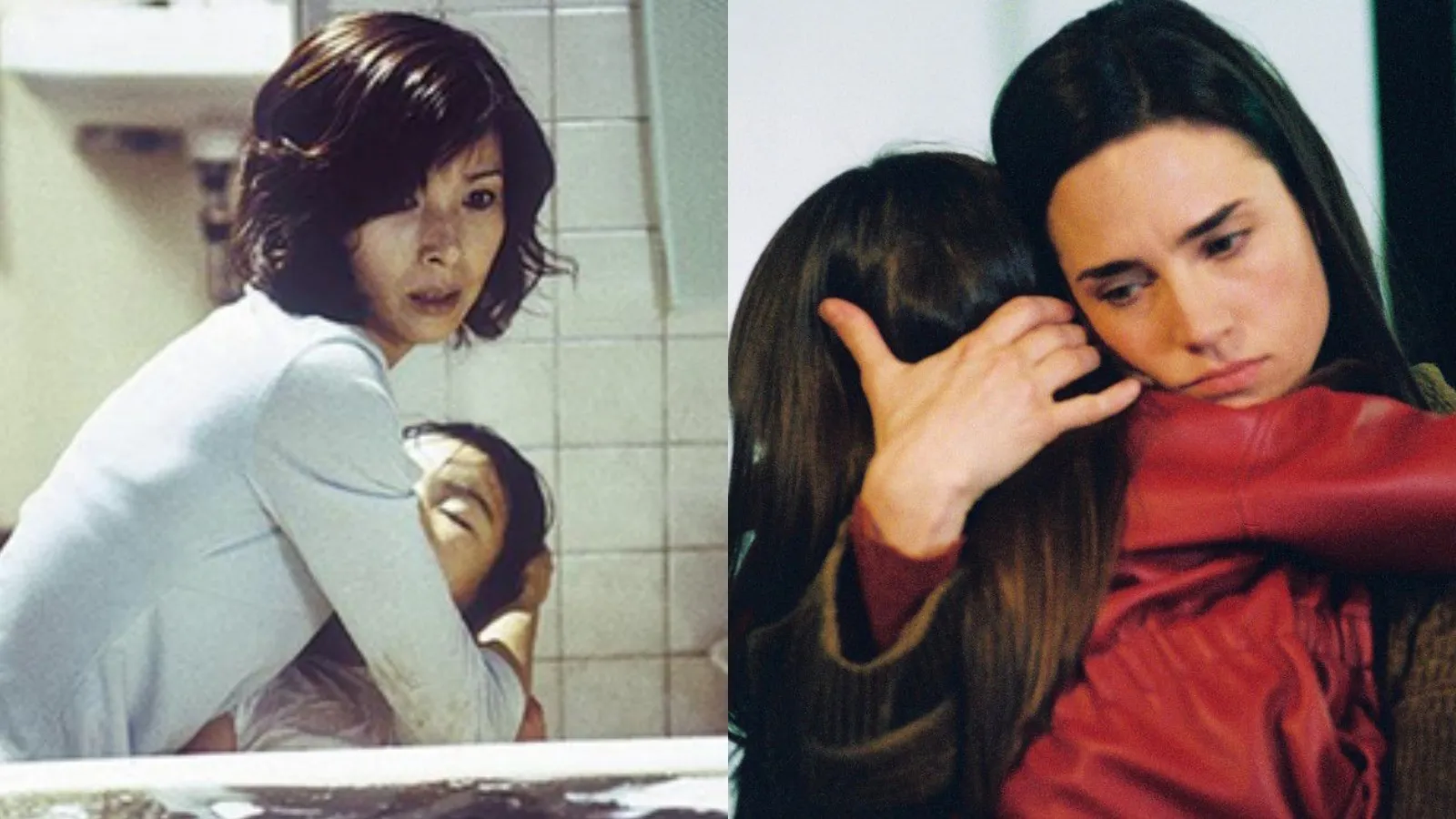
Once again, Hideo Nakata takes the helm on Dark Waters, the horror/drama released the same year as The Ring remake. In the 2002 film, which was inspired by the short story “Floating Water” by Koji Suzuki, a divorced mother and her daughter move into a rundown apartment and discover a mysterious leak in their ceiling that gradually worsens amidst strange supernatural occurrences.
Unfortunately, Dark Water performed poorly at the box office, only managing to take home $1.4 million, whereas the remake — as seems to be the recurring theme — surpassed that total by a long shot with $44.4-49.5 million worldwide. The remake remains faithful to the narrative, albeit with some minor alterations to showcase the technological advancements of a three-year cinematic progression.
4. Pulse (2001) / Pulse (2006)
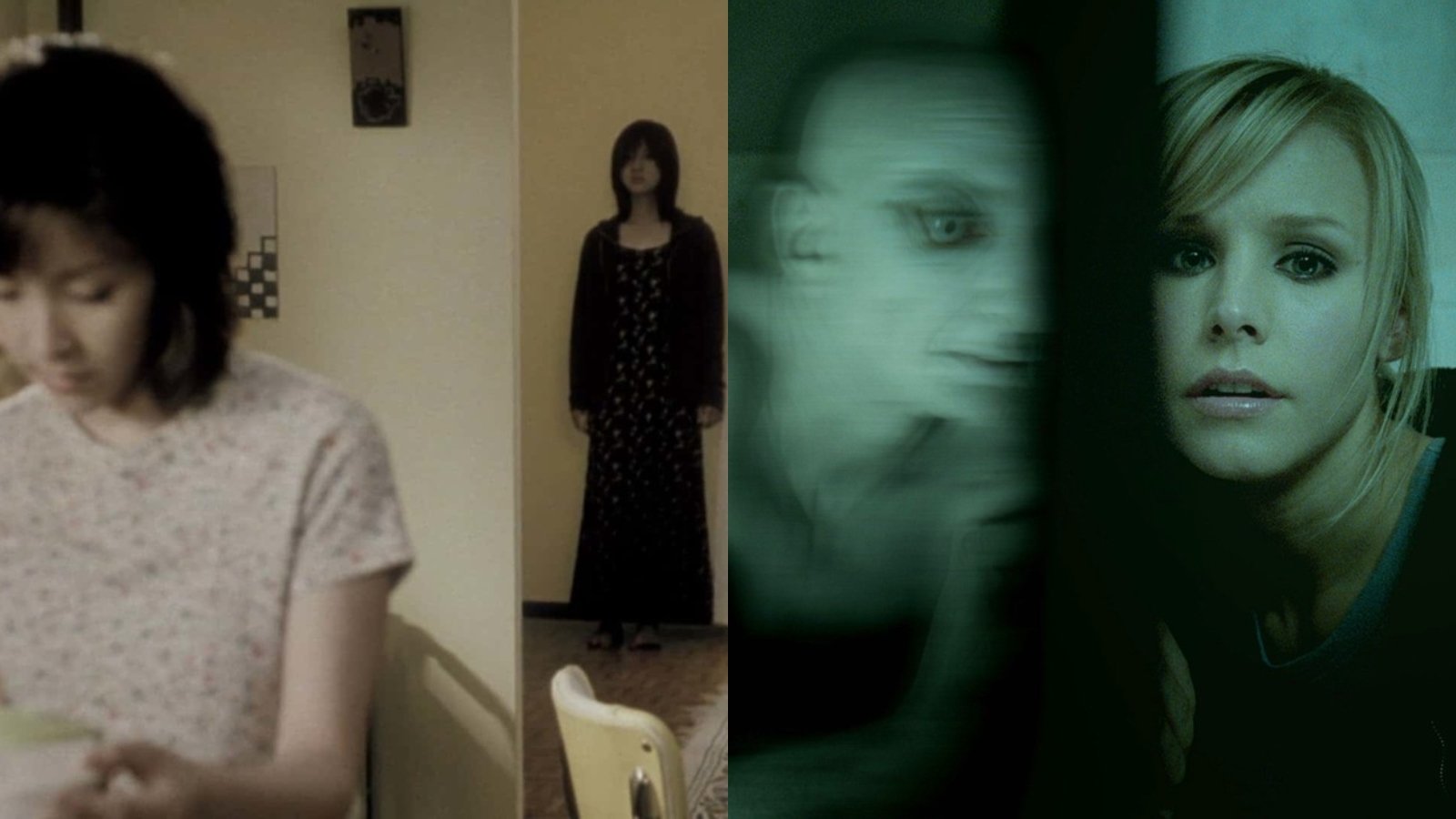
Like Ju-On: The Grudge and Ringu, Kiyoshi Kurosawa’s Pulse (2001) became exceedingly popular and developed a cult following, eventually being adapted into a novel by Kurosawa himself, but not before inspiring an English-language remake in 2006. Baring some resemblance to Ringu, the film centers on a ghost residing in the internet who attacks the living. Pulse is divided into two separate storylines, following florist Kudo Michi and economics student Ryosuke.
Some disturbing imagery managed to get Pulse (2001) across the finish line, but several places behind its American predecessor from Scream director Wes Craven, which grossed a whopping $30 million compared to Kurosawa’s measly $318,451. Pulse, both the original and the remake, received mixed reviews from critics, who panned the tedious and predictable storyline.
5. One Missed Call (2003) / One Missed Call (2008)
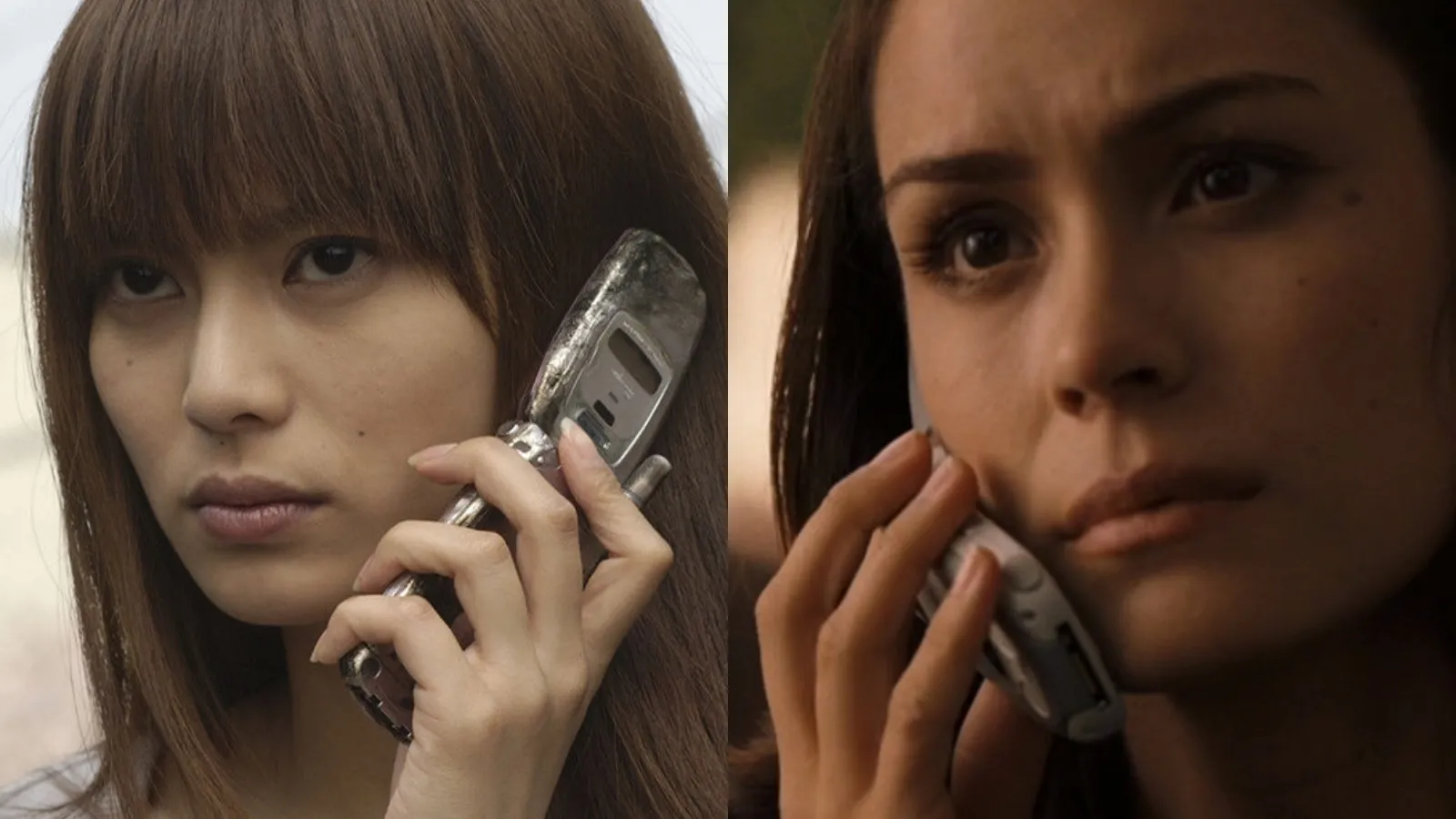
Famous Japanese screenwriter/director Takashi Miike, who also directed the horror film Audition (1999), might be best known for working on One Missed Call (2003), a J-horror based on Yasushi Akimoto’s novel Chakushin Ari that revolves around psychology student Yumi Nakamura, whose friend Yoko receives a strange voicemail from a missed call that turns out to be dated two days in the future. After Toko dies in mysterious circumstances, Yumi discovers a phenomenon that had occurred years before Yoko’s encounter, so when Yumi receives a missed call herself, it becomes a race against the clock to avoid certain death.
Performing better than most J-horrors, One Missed Call grossed $16.2 million against a $1.7 million budget, which is an impressive haul. Five years later, Eric Valette took the helm on an English-language remake of the same name, following an almost identical concept besides several name changes — such as Beth Raymond instead of Yumi Nakamura — to appease the appropriate demographic. The remake doubled its budget total, reeling in a combined total of $45.8 million at global box office, including Japan.
6. Apartment 1303 (2007) / Apartment 1303 3D (2012)
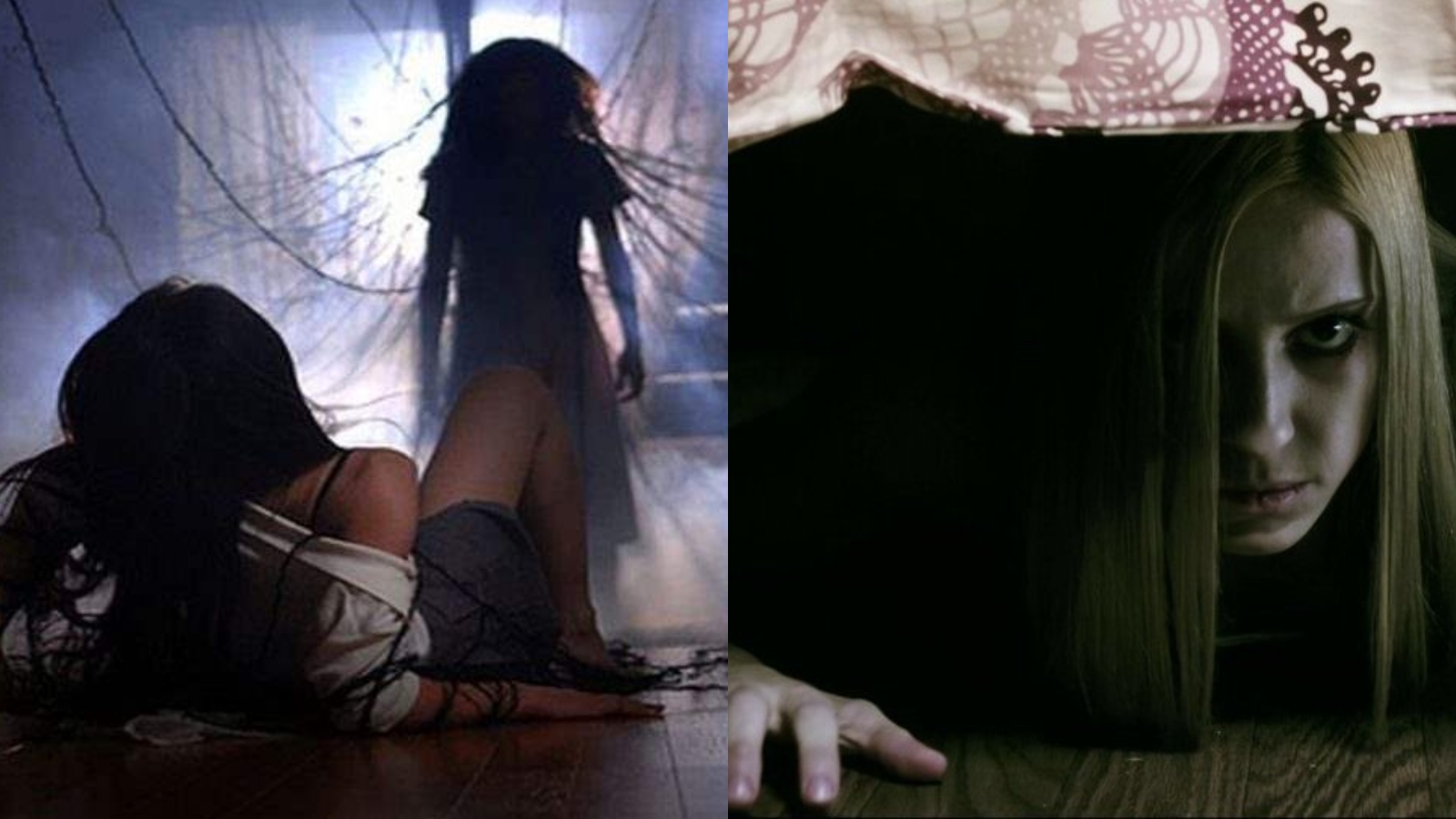
Ataru Oikawa’s Apartment 1303 was based on Ju-On author Kei Ōishi’s horror novel of the same name and follows Mariko Midorikawa, the sister of Sayaka Midorikawa, who uncovers dark and mysterious forces at work after Sayaka commits suicide suddenly in her own apartment. Returning to Apartment 1303, Mariko is tasked with finding the cause of Sayaka’s death, which isn’t exactly clear-cut. While Apartment 1303 opened with $4,793 in eight theaters, the exact box office total isn’t so easily obtained. Judging from other Japanese horrors, we can assume that the take-home wasn’t astounding.
On the Wikipedia page for Apartment 1303, there are plentiful differences between the Japanese version and the American remake, which released in 2012. Michael Taverna’s remake, titled Apartment 1303 3D, sees Janet Slate commit suicide after strange occurrences make it appear as if she’s being abused by her boyfriend. When Janet dies suddenly, her sister Lara begins experiencing the same unnerving events. Surprisingly, Apartment 1303 3D was a box office flop, unlike other J-horror remakes, as it failed to break even with $3,363,093 against a $5 million budget.
7. Don’t Look Up (1996) / Don’t Look Up (2009)
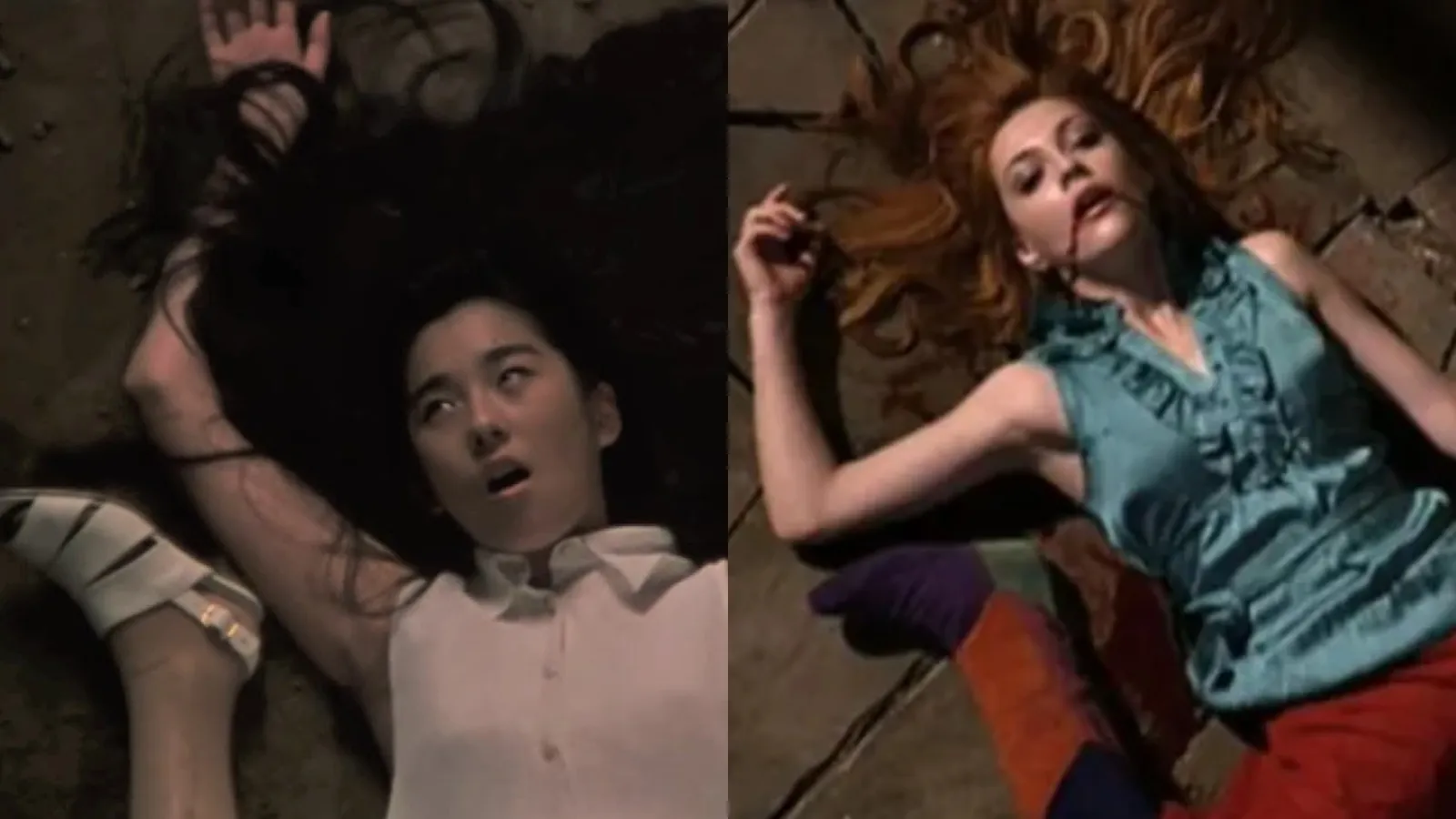
Yet another J-horror from Hideo Nakata, Don’t Look Up (1996) sees a filmmaker and their crew gradually lose their sanity after being haunted by the ghost of a dead actress. It isn’t difficult to see how Don’t Look Up would influence Nakata’s creative choices for The Ring, making it so that Nakata would need to see failure in order to succeed. Again, the exact box office figures aren’t easily accessible, but both the original film and its remake were disappointing disasters. Even though he made a name for himself with Made in Hong Kong, Chinese filmmaker Fruit Chan wasn’t enough to save Don’t Look Up (2009) from the same fate as its predecessor.
While the concept was inventive, the execution wasn’t. Even by 1996, there had been so many similar projects that Don’t Look Up was nothing more than a ripple in time rather than a genre-defining release. Neither the 1996 original nor the 2009 remake have concrete box office figures, which seems to be a recurring theme for production company to make a habit of hiding.

